|
...That was the second thing I said to my wife on our first date. It was February of 2020, we met at a Harlem café after talking on Hinge for a week, and I was fifteen minutes early to a date I'd postponed by an hour at the last minute. I thought I'd ruined my chances before the first sip of a latte. Fast forward two years– We’ve been married for nine months, and here I am writing this to you from a café in Dakar, Senegal, having quit my job to join her on her research year in France & West Africa. …And that’s the “TLDR” of a long story.
Yet, in a sense, everything I’ve experienced hinged on that single sentence; a revelation and a request, containing the breadth of my life. “I’m from the South... Can I get the door for you?” illustrates the affective experience of being a White Southern dude who grew up in a small town outside of Atlanta, left Georgia to become a writer in New York City, had play productions in NYC’s downtown experimental theatre scene, taught English at a Harlem High School, went on a date with a beautiful Black woman, married her during a global pandemic, then quit my job to travel through France & Senegal in support of my wife’s academic career. “I’m from the South... Can I get the door for you?” captures what it feels like when you’ve become a new husband and you’re crossing multiple cultures on three continents during a time when the world seems to have turned upside down. It describes the duality having internal conflict, while also finding a sense of meaning. “I’m from the South... Can I get the door for you?” means living in worlds that are supposed to be at odds with each other, and then the discovering that they aren’t at odds at all. That’s what this newsletter is about. In the words of one of my favorite literary theorists, Kenneth Burke, if “We can see our everyday behaviors in terms of eternity" then ... Finish reading this in THE SOUTHERN GENTLE MAN
0 Comments
There was a morning in Paris where I was awoken by the Saint-Ouen sun streaming through the window of our studio to find a cup of coffee by the bedside table. My wife often does this for me. It may seem like a total act of selflessness on her part, but the truth is that I'm a monster first thing in the morning before coffee. She promises me that waking me up with coffee is purely in her own best interest. Yet, this cup was different. It tasted perfect. It was perfect because it was a heightened version of the taste I love. The kind of sweet-bitter spiced-too sweet that my wife hates. I looked up at her, smiling through an early morning grimace and said, "This is so good. What's in this?" "A cinnamon stick," she replied, "When we go to coffee shops, you put ground cinnamon in your coffee, so I just put a cinnamon stick in." The cinnamon stick. The Saint-Ouen sun. These things are measurable. They're easy to understand in their causality. Yet, the affective experience of having desire satiated by something more attuned to my desire cannot be measured. My wife knows me.That's intimacy. One afternoon, I was folding her clothes after laundry and I folded one of her sweaters in thirds. I then rolled it from its base to its neck so it was a small cylinder that can fit easily into a drawer or carry on, alongside its five cousins. She picked up the sweater and said, "You folded it exactly how I like it." "I remember how you like your clothes folded," I replied. "Thank you," she said. I know my wife. That's intimacy. You see, I could write about strolling Montparnasse, drinking Cotes du Rhone by the Seine, nights spent strolling the Champs-Élysées, kissing on the train from Paris to Nantes with the French farmland rolling by the window, or a (tame) 48 hours in Amsterdam. Those experiences would fit the narrative of a glamorous jet-getting and romantic life. Yet, only writing about them would be half-truths. The whole truth is that, amidst this Beauty, we experienced a trauma. That trauma is the worst thing that’s happened to either of us. It's something we prefer to keep to ourselves. Yet, we endured. We survived. That’s what makes the coffee and the sweater so important. They are expressions of an intimacy that can only be described in Metaphysical terms. It's an intimacy that exists in a transcendent space, between Object and Form, where Ideal Love becomes something you can feel, taste, and touch. See, sunsets in Europe won’t give y’all the strength to withstand the kind of real suffering that's beyond your control. Red wine and pretty paintings can’t bind you to someone so much so that y'all are able to be joyful in the face of trauma. The Loire Valley won’t give y’all the ability to help each other up, dust each other off, and press on through life, loving each other through whatever pain comes your way.
The sweater. The coffee. That’s the real shit. That’s what keeps you married for sixty-something years. That’s what lets y’all love each other “until death do you part”. So, what am I learning as a White guy after quitting my job to travel the world in support of my Afro-Latina wife’s academic career? ...Love is the intimacy that endures. -Britton Buttrill, (Paris, London, New York City) Perhaps Jacques Derrida was right when he implied that language creates reality. Moving to France has given me a new relationship to language. I have always known intellectually how difficult it is for people to live in a place where they do not know, or are not fluent in the majority's spoken language. I now have an affective understanding of that fact. It should go without saying that the American prejudice against other languages is part of its systemic racism, but I feel the need to emphasize that fact. Shit is hard, so to say. All of these events are difficult to express in language, because no language (English, French, or otherwise) can adequately capture the beauty of Montparnasse, the Loire valley, or the taste of four Euro Cotes du Rhone. It can't express the chaos of lugging five 70-plus LB bags through the train to Nantes, or the difficulty of navigating the French bureaucracy to get our Pass Sanitaire. Of course, I'm a writer, so I suppose it’s my job to do just that. It’s surreal to be blessed this much; to be able to do what I've always dreamed of doing. To be doing something so ridiculously cliché, but real. How does one rise to that occasion? How does one retain a sense of humility while also embracing an opportunity rarely afforded to anyone? I guess you have to start with gratitude. I'm grateful for the opportunity given to me by my wife; being able to focus exclusively on my vocation while being in beauty; surrounded by it, always. It's a call to action. Part of my speech at our wedding was; "you're beautiful, you're easy to love, and your scholarship. is important." (Scholarship, meaning scholarly work, not a financial award.) To me, that seemed easy enough to believe and to say. One of my wife’s colleagues shared what I said online.Academic Twitter thought that this sentiment from a husband was something significant, even rare. I couldn't understand how this idea was anything other than obvious. When I thanked my wife for bringing me with her on her research year, she said that not many spouses would do this. Again, I don't get it. How could I pass up the chance to travel the world and focus on my writing? It's a dream come true, right? According to one Twitter troll, quitting my job to support my wife’s career is a “Total Beta Move”, hence the title of my blog. Because, this is a dream come true, right? It is a dream realized, but it’s also a reversal of gender roles. As of now, my wife is the "bread-winner". I know the impulse towards a patriarchal mindset is something I'm still unlearning, because there is a part of me that feels like I'm not doing my job as a husband by not having a nine to five. It feels selfish, but that's because I've been conditioned that way. When men fall into that impulse, it's self-defeating... I've come to believe that. Yet, I also believe that taking on some sense of responsibility for something other than oneself is essential in the attainment of meaning.
I think this is especially true for men, but we have to be careful not to let that idea become oppressive. Perhaps there can be a positive masculinity within the balance of these ideas? I can't be definitive, because my ideas are always expanding.I've had more room for those ideas to expand because of this new relationship with language. Existing in this dual space, between languages is giving me a new relationship with myself, and the world around me. I'm forced to be more present, because I no longer have a running internal narrative. So, if our sense of reality is our sense of self, then Monsieur Derrida was right; language does create reality. Yet, there's potential within this idea that ain't so post -modern. As I slowly learn my “etres” and “avoirs”, I'm moving towards a new sense of self; a new reality. I really felt this when we went to Mass at the Notre Dames de Nantes (in Nantes, not Paris). The Cathedral was breathtakingly beautiful. I know the rituals of Mass, but I definitely don't know French... yet. For a while, I tried to translate the liturgy in my head, but I was so focused on understanding that I neglected feeling. Finally, I just let go, allowing the language to flow over me, like listening to an orchestra. Then, when I was a in that space of duality, I was able to experience the sublime. It was more centering than the best mindfulness meditation. At the end of the day, who knows what creates reality? All you can do is to try to create the best life you can. As a new husband, I'm striving for that equitable reality in marriage. Beyond that, I'm doing my best to rise to that calling to live the best life I can, with a sense of gratitude and humility. -Britton Buttrill; Nantes, France. |
Archives
March 2022
Categories |
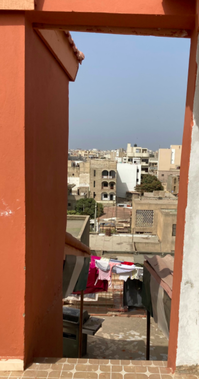
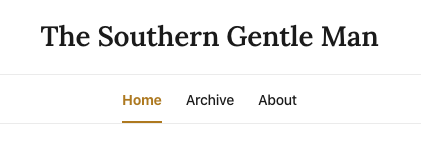
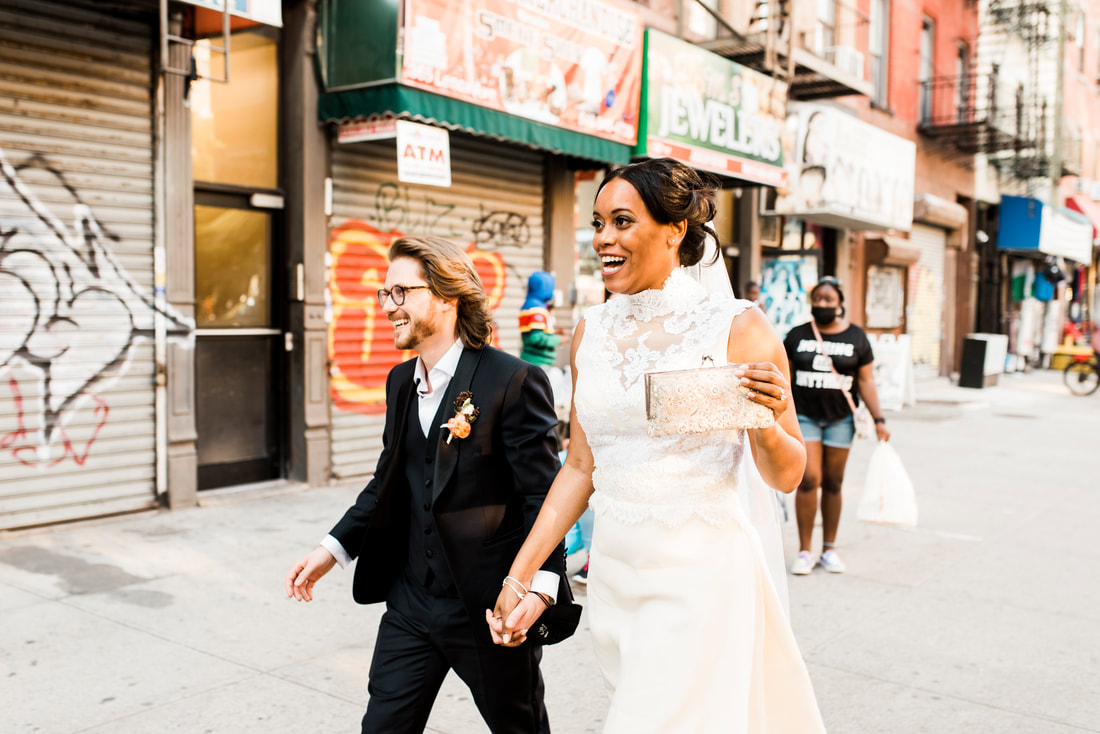
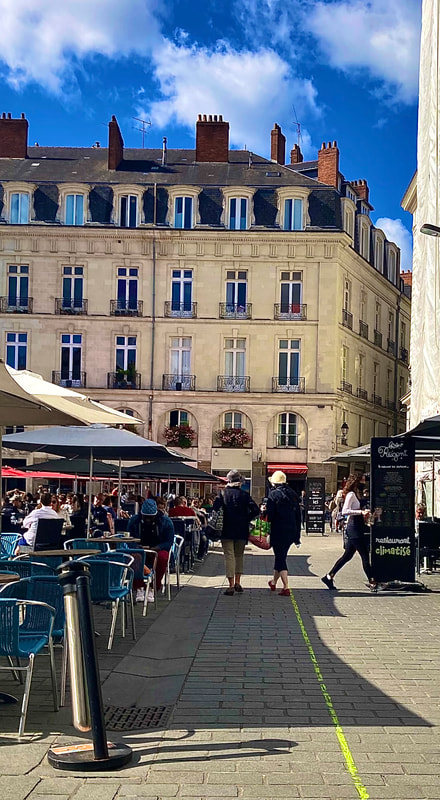
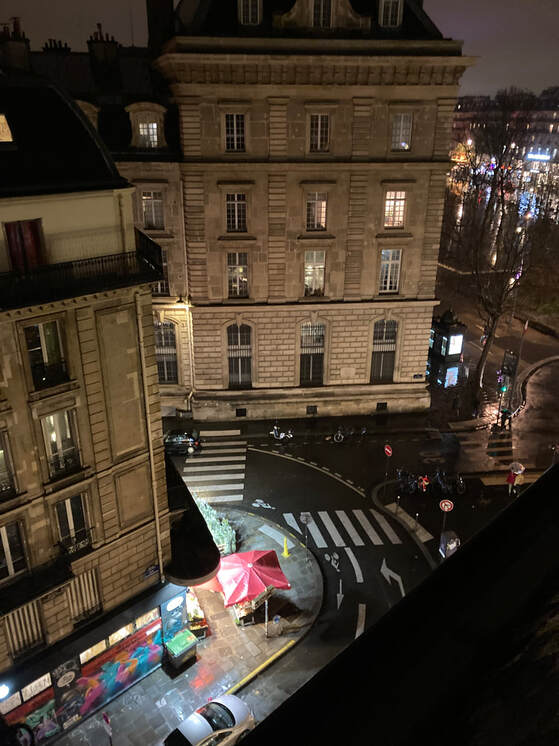
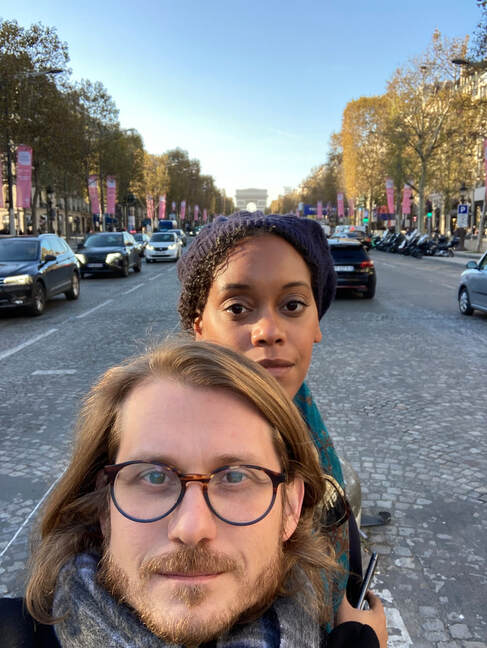
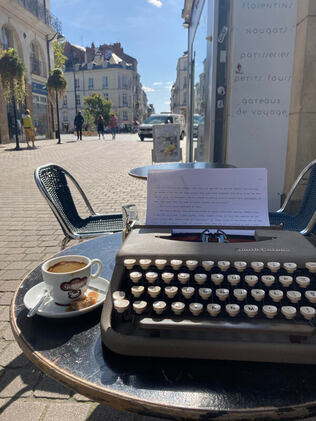

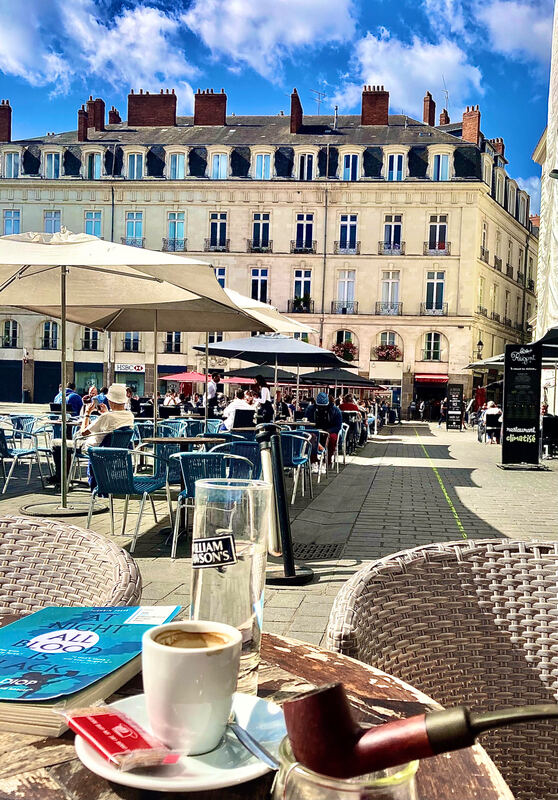
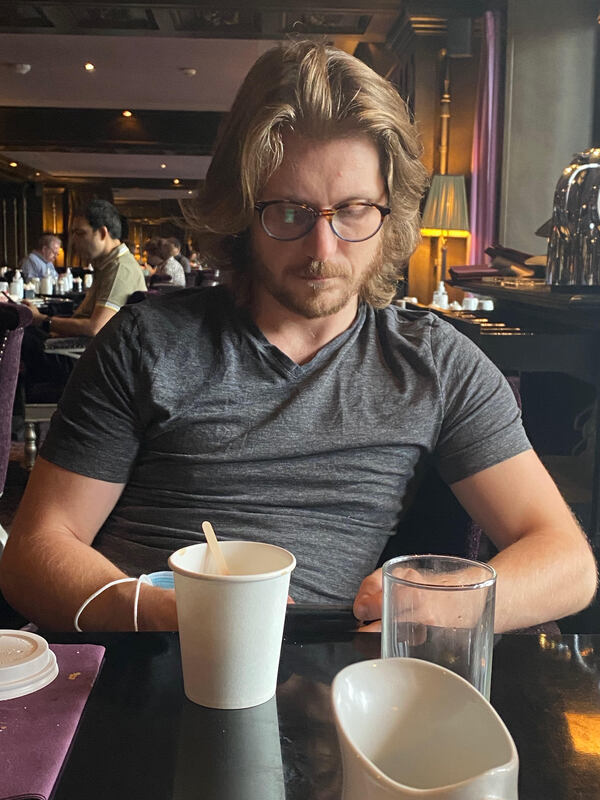
 RSS Feed
RSS Feed